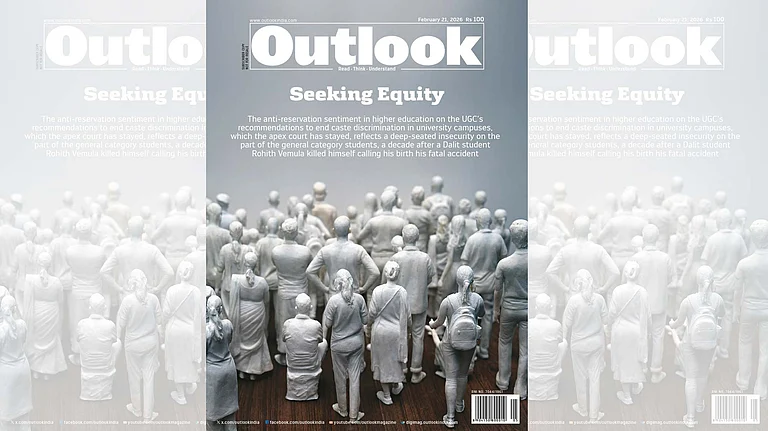A recent Outlook blog damns homeopathy as nonsensical, a mere placebo. And the millions who swear by it are susceptible fools, apparently. Adding to the armoury of arguments is a recently released National Health and Medical Research Council of Australia (NHMRC) report concluding "there are no health conditions for which there is reliable evidence that homeopathy is effective". And, "Homeopathy should not be used to treat health conditions that are chronic, serious or could become serious."
To each her own – that’s my philosophy. Let's be clear, my closest friends and family are allopathic doctors. I use allopathy myself. But I know ayurveda and homeopathy remedies work for different ailments. I question the gall of the allopathic system issuing edicts, a la the NHRMC report, as though these are oracles, the ultimate authority on all knowledge.
I witnessed the efficacy of homeopathy treatment when my four-year-old daughter was cured of blood dysentery years ago. I knew by heart the now-banned drugs her pediatrician would prescribe. Terrified, I consulted an experienced homeopath. Within four hours, the child’s bloody diarrhoea stopped. The next day she was normal. Since then, I've seen homeopathy work in several cases on a variety of people.
The trick, with homeo, ayurveda or allopathy is to find a good doctor. All three systems have their share of quacks. To me, the demand to produce proof on allopathy's terms, genuflect to their altar of alleged high science, is arrogant. Susruta was performing surgery when the founders of allopathy were running around in animal skins. Ayurveda and Chinese medicine are revered ancient systems. Homeopathy, brought to India 200 years ago by Hahnemann was embraced. Far cheaper than allopathy or ayurveda, it offers hope to the masses.
Dr. Kumar Dhawale, a highly respected, Mumbai homeopathic practitioner, studied allopathy, earned an MD in psychology, then turned to homeopathy. He says: "Over 30 million Europeans use homeopathic medicine. In India over 100 million people depend solely on homeopathy. When the Swiss government conducted the most comprehensive government review of homeopathy undertaken, it was found to be both clinically effective and cost effective. It was estimated, a saving of hundreds of millions of dollars a year could be achieved through greater use of homeopathic treatment in western countries." Troubling news for the pharmaceutical industry?
Dr. S.P.S.Bakshi, Vice President of Liga Medicorum Homeopathica Internationalis, says, 'India has over 300,000 registered homeopathic doctors providing health care, benefiting the public with the gentle science of homeopathy.' He adds, 'amid all this global homeopathy growth, a biased, flawed review by a small group of non-homeopaths must be taken with a pinch of salt'.
So what is it about this report by NHMRC that has the homeopathic clan up in arms? Martin Costigan, President of the Australian Homeopathic Association clearly lays out arguments questioning the report's integrity. AHA claims that NHMRC was already biased. In April 2011, 12 months before the study, NHMRC announced it is "unethical for medical practitioners to treat patients using homeopathy" because homeopathy "has been shown not to be efficacious". Such a public position in advance of any research being undertaken by the NHMRC, betrays a blatant bias that must have surely influenced the research outcome.
The AHA also questions the methodology. "The NHMRC Review of Homeopathy chose to limit its range of data analysis to Level 1 evidence in the hierarchy of evidence, and further limited the reach of adequate data collection by employing a systematic review of existing systematic reviews (effectively an over-view), rather than undertaking its own systematic review".
Further eroding the integrity of the research is the selective use of data. RCTs or Randomised Controlled Trials commonly used in conventional medical research has its limitations when it comes to homeopathy which is based on a "whole person/whole medicine" approach.
According to Dr. Dhawale, "Homeopathy is a holistic system of medicine that focuses on the unique situation of each individual's overall health. Homeopathy is not ideally suited to systematic reviews which focus on isolated disease conditions without considering the overall health of the individual". In spite of these limitations there are numerous high quality RCTs that have established the efficacy of homeopathy. Interestingly, the NHMRC chose to exclude these from the scope of its review.
If this isn't enough, the review panel did not have a single homeopath or anyone with any expertise in homeopathy. And two of the three non-homeopathic experts consulted prior to the publication of the report expressed numerous concerns which were conveniently ignored by the NHMRC – a breach of standard protocols for such research.
Finally, here's an interesting little nugget. The AHA cites allegations that the first contractor engaged by NHMRC to conduct the review was sacked. Perhaps because they found that homeopathy does work in certain cases? When these findings were challenged, two of the researchers apparently resigned in protest, leading to the appointment of a new contractor, OPTUM/INSIGHT. They were, allegedly, given more narrow criteria and employed a different methodology from the first contractor. The AHA further alleges "The NHMRC has refused multiple FOI (Freedom of Information) requests seeking details of this initial review process and its findings, indicating its reluctance to allow this material to be made public."
It is sometimes necessary to demystify science to arrive at the truth. Unscrupulous researchers can obfuscate and manipulate facts and thoroughly confuse non-scientific readers. My point though, is, why should ayurveda, homeopathy or other traditional systems of medicine bother about the demands to 'prove' themselves to the allopathic lobby. People know when something works.
And the proof of the system is in the healing. Unfortunately, as is happening in the UK, the pharmaceutical lobby in cohorts with so called researchers, demands a ban on homeopathy. When that happens, they'll be laughing all the way to the bank.

























